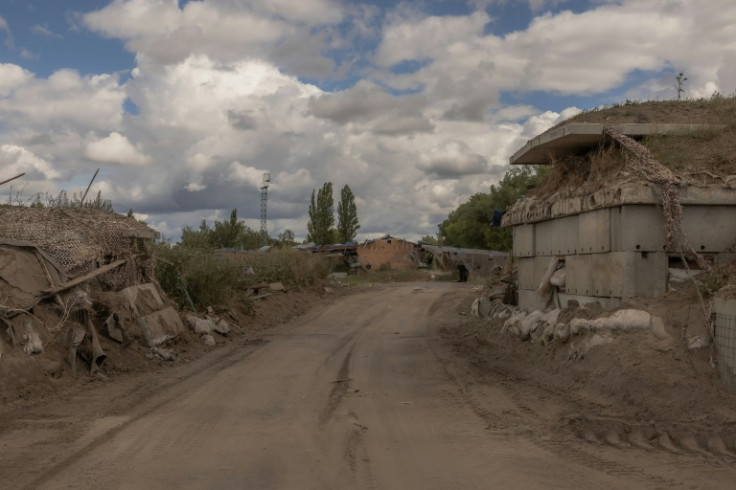
Ukraine said Tuesday it would not hold on to Russian territory captured in its surprise cross-border incursion and offered to stop raids if Moscow agreed a "just peace".
Ukrainian forces entered Russia's Kursk region last Tuesday, taking over two dozen settlements in the biggest attack by a foreign army on Russian soil since World War II.
More than 120,000 people have fled the area and Ukraine's military chief Oleksandr Syrsky said Monday that his troops controlled about 1,000 square kilometres of Russian territory.
An AFP analysis of data from the Institute for the Study of War gave a lower figure of at least 800 square kilometres under Ukrainian control.
Foreign ministry spokesman Georgiy Tykhy on Tuesday said Kyiv was not interested in "taking over" Russian territory and defended Ukraine's actions as "absolutely legitimate".
"The sooner Russia agrees to restore a just peace... the sooner the raids by the Ukrainian defences forces into Russia will stop," he told reporters.
Ukraine also said it was imposing movement restrictions in Sumy region along the border due to an "increase in the intensity of hostilities" and "sabotage" activities.
Russia's defence ministry meanwhile said it had "foiled" new Ukrainian attacks in Kursk by "enemy mobile groups in armoured vehicles to break through deep into Russian territory".
Since launching its invasion in February 2022, Russia has captured territory in southern and eastern Ukraine and subjected Ukrainian cities to missile and drone barrages.
Ukraine has found itself outmanned and outgunned and has struggled after some early successes in pushing Russian forces back during 2022.
The current offensive into Kursk region, which caught Russia off guard, is by far the biggest cross-border action since the invasion.
On the Ukraine side of a border crossing into the Kursk region, AFP reporters saw toppled concrete fortifications and caved-in remains of security and customs buildings revealing the intensity of the fighting that swept through the area.
On the road, around 10 blindfolded and bound men in Russian military fatigues being driven in a military vehicle away from the border crossing in the direction of the city of Sumy.
"They didn't protect the border," a Ukrainian serviceman who took part in the offensive and identified himself as Ruzhyk told AFP in Sumy region.
"They only had anti-personnel mines scattered around trees at the side of the road and a few mines that they managed to quickly throw along the highways," he said.
Another serviceman said that his unit of military engineers went in to clear the mines before Ukrainian tanks entered.
"But when our guys came in, the Russians ran away. They didn't have time to press the detonate buttons."
A 27-year-old squad leader, who identified himself as Faraon, was sparing but direct in his description of battles in Kursk.
"I saw a lot of death in the first few days. It was terrifying at first but then we got used to it," he told AFP.
"There have been many deaths," he repeated stood next to a forest road leading to the frontier, without elaborating.
Russian President Vladimir Putin has vowed to "dislodge" Ukrainian troops.
Putin told a televised meeting with officials on Monday that "one of the obvious goals of the enemy is to sow discord" and "destroy the unity and cohesion of Russian society".
Putin also said Ukraine wanted to "improve its negotiating position" for any future talks with Moscow.
Regional governor Alexei Smirnov told the same meeting that Ukrainian forces had entered at least 12 kilometres into the region and the new front was now 40 kilometres wide.
Russia had conceded earlier that Ukrainian forces had penetrated up to 30 kilometres (20 miles) into Russian territory in places.
A Ukrainian security official told AFP, on condition of anonymity, at the weekend, that Ukraine sought to "stretch the positions of the enemy, to inflict maximum losses and to destabilise the situation in Russia as they are unable to protect their own border".
The Ukrainian official said thousands of Ukrainian troops were involved in the operation.


.jpg?w=600)





